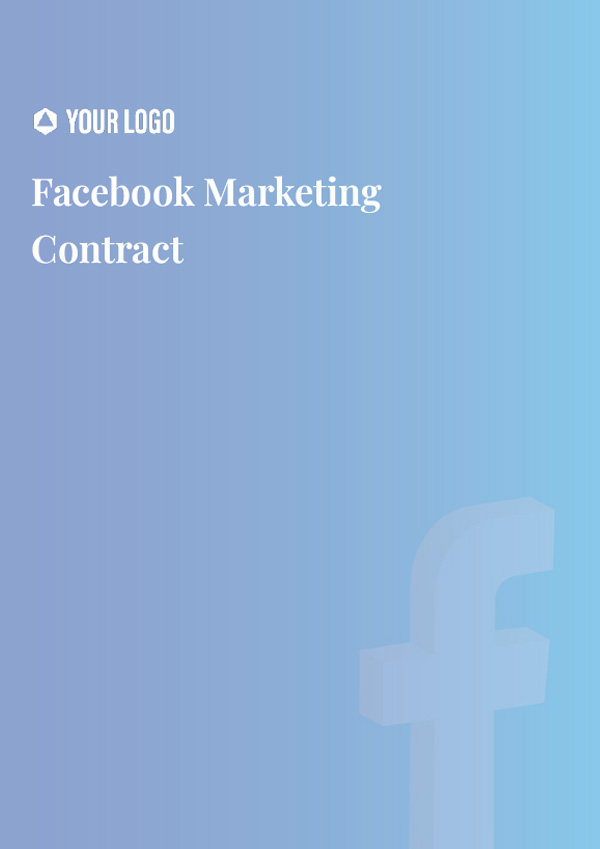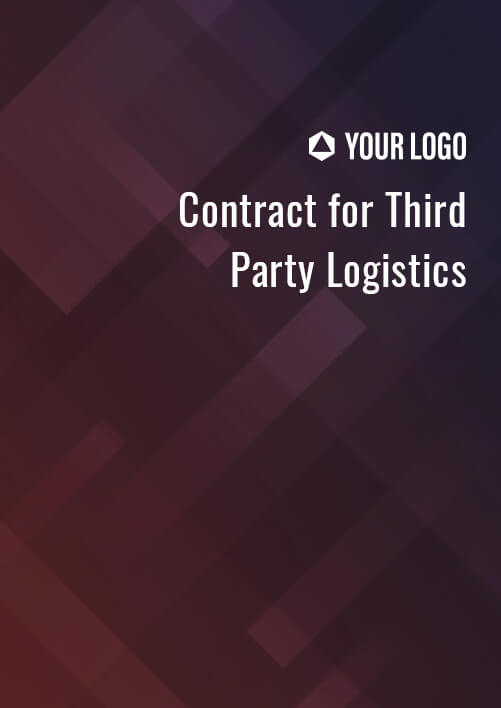Empty space
1x
2x
3x

Employee NDA
Agreement
Empty space
1x
2x
3x
Prepared for:
[Employee Name]
Prepared by:
[Company Name]
Employee NDA Agreement
Employee NDA Agreement
This Employee NDA Agreement (hereby referred to as the “Agreement”) is made and entered into on [Date] (hereinafter referred to as the "Effective Date"),
By and Between
[Employee Name] (hereby referred to as the “Employee”), located at [Address]; and
[Company Name] (hereby referred to as the “Company”), with its registered office at [Address].
The Employee and the Company shall be collectively referred to as “Parties” and individually as “Party”.
WHEREAS the Company hired the Employee as [Position Name] pursuant to the terms and conditions of the [Employment Agreement] signed between the Parties on [Date] (hereinafter referred to as the "Employment Agreement");
AND WHEREAS in connection with the Employee's job duties under the Employment Agreement, the Company may disclose to Employee certain confidential and proprietary information (hereinafter referred to as the "Confidential Information") related to the Company's business;
AND WHEREAS the Employee agrees to not disclose any Confidential Information to any third party without written authorization from the Company.
NOW, THEREFORE, in consideration of the mutual covenants and commitments contained herein, as well as other goods and valuable consideration (the receipt and sufficiency of which are to be acknowledged), the Parties do hereby agree as follows.
Empty space
1x
2x
3x
Terms and Conditions
Terms and Conditions
1. Confidential Information
1. Confidential Information
"Confidential Information" shall mean any information or data that is generally not known outside the Company including (but not limited to):
- 'Intellectual Property' which includes patent applications, trade secrets, trademarks, service marks, logos, trade names, internet or website domain names, rights in designs and schematics, copyrights (including rights in computer software);
- Any inventions or discoveries which the Employee may, from time to time, make or discover in the course of its duties;
- Lists or details of clients, suppliers, and customers;
- Information of employees and officers, including salaries, strengths, weaknesses, and skills;
- Information concerning the Company’s business, including pricing information, profits, sales information, accounting, and unpublished financial information, business plans, marketing plans, and sales forecasts;
- Technical information concerning Company’s products and services, including product know-how, formulas, calculations, concepts, designs, devices, diagrams, computer programs, algorithms, software, firmware, hardware, manuals, drawings, photographs, software code, test procedures and results, research projects and product development, technical memoranda and correspondence;
- Information submitted by the Company’s customers, suppliers, employees, consultants or co-venture partners with Company for study, evaluation, or use; and
- Any other non-public information involving or reasonably related to the business or prospective business of the Company.
2. Exclusions from Confidential Information
2. Exclusions from Confidential Information
Pertaining to the terms mentioned herein this Agreement, the following conditions shall be excluded from the information being Confidential Information:
- Any public or commercialized information of the Company and the business thereby which the Employee had no part or fault in.
- Any data or information discovered or produced by the Employee during or before any disclosure by the Company.
- Any information available to the Employee through legitimate means other than from the Company.
- Any data or information that the Company consents for disclosure.
3. Non-Disclosure Obligations
3. Non-Disclosure Obligations
All confidential information communicated to the Employee by the Company in connection with the Employee's duties under the Employment Agreement shall be held by the Employee in full faith. At no time shall the Employee use any such confidential information, either directly or indirectly, for personal benefit, or disclose or communicate such information to any third-party. The obligation to ensure and protect the confidentiality of the Confidential Information shall continue to be effective after the termination of this Agreement.
The following are the exceptions to the non-disclosure obligations:
- The Employee may disclose any of the Confidential Information to such employees, agents, and representatives of the Company who need to know such information and agree to be bound by the terms of this Agreement. The Employee accepts to take all necessary steps to ensure that such individuals do not violate the terms of this Agreement.
- If the Employee is required by law to disclose the Confidential Information, the Employee shall notify the Company with prompt notice of such request in writing so that the Company may waive the Employee’s compliance with the provisions of this Agreement.
4. Ownership and Title
4. Ownership and Title
The Employee agrees that all rights, title, and interest in any Confidential Information shall remain the sole and exclusive property of the Company.
5. Return of Confidential Information
5. Return of Confidential Information
Upon the termination of employment with the Company, the Employee shall return to the Company all the documents, notes, notebooks, memorandums, computer disks, software programs, or other material that may contain or relate in any way to Confidential Information.
6. Remedies
6. Remedies
The Employee acknowledges and agrees that the use or disclosure of any Confidential Information to a third party or in a manner inconsistent with this Agreement shall cause irreparable injury to the Company for which damages would not be an adequate remedy. Accordingly, in addition to any other legal remedies which may be available at law or in equity, the Employee agrees that the Company shall seek injunctive relief against the unauthorized use or disclosure of Confidential Information.
7. Non-Compete
7. Non-Compete
During the term of employment with the Company, the Employee shall not directly or indirectly assist, engage in, be concerned, or participate in any business/activity which is competitive with the Company.
8. Disclaimer of Warranty
8. Disclaimer of Warranty
The Company makes no representation or warranty, either express or implied, as to the accuracy, completeness, or correctness of any of its Confidential Information.
9. Indemnification
9. Indemnification
The Employee shall indemnify and hold harmless the Company from any damage, loss, penalty, cost, claim, or expense incurred by the Company as a result of the Employee’s breach of this Agreement.
10. Non-solicitation
10. Non-solicitation
During the term of this Agreement and for [number of years] year(s) thereafter, the Employee hereby agrees not to, directly or indirectly, solicit any employee or independent contractor of the Company to perform services for any entity (other than the Company or its affiliates), nor attempt to induce any such employee to terminate or breach an employment, contractual or other relationship with the Company.
11. Survival of Non-Disclosure Obligations
11. Survival of Non-Disclosure Obligations
If the employee decides to leave the company, it shall still be obligated to not disclose the Company’s confidential information or trade secrets.
12. Termination
12. Termination
Either party may terminate this agreement upon [number of days] days prior written notice to the party with or without cause.
13. Arbitration
13. Arbitration
In the event of any dispute arising in and out of this Contract between the Parties, it shall be resolved by Arbitration. There shall be [Number of Arbitrators] Arbitrators which shall be appointed by [Party Name]. The venue of Arbitration shall be [Venue/Location of Arbitration] and Seat shall be [State]. The Arbitrators' decision shall be final and will be binding on both the Parties.
14. Miscellaneous
14. Miscellaneous
- Assignability: Neither party may assign this Agreement or the rights and obligations thereunder to any third party without the prior express written consent of the other Party which shall not be unreasonably withheld.
- Notice: Any notice that is required by this Agreement shall be in writing and shall be given to the appropriate party by personal delivery or certified mail, postage prepaid, or any such delivery service provided.
- Amendments: No modification or waiver of the provisions of this Agreement shall be valid or binding on either Party unless in writing and signed by both Parties.
- Counterparts: This Agreement may be executed in duplicate, to be retained by either Party, each of which shall be deemed an original, but both of which together will constitute one and the same instrument.
- Waiver: Neither Party can waive any provision of this Agreement unless agreed to in writing. The failure to exercise any right or obligations provided in this Agreement shall not be a waiver of subsequent rights or obligations.
- Inclination: The Parties must acknowledge that this Agreement hereinafter is solely for the benefit of the Parties undersigned and serves no inclination to any Party, nor is intended to confer any rights or remedies in favor of any person, party, or affiliate, other than the Parties duly undersigned and their members.
- Governing Law: The Agreement and all the terms contained herein shall be governed by and construed as per the jurisdiction laws of the state of [State].
- Severability: Should any provision or portion of this Agreement be held unenforceable or invalid for any reason, the remaining provisions and portions of this Agreement shall be unaffected by such holding.
- Legal and Binding Agreement: This Agreement is a legal and binding agreement as per the laws of [State/Court/Region]. The Parties hereby warrant that they have the authority and power to enter into the Agreement.
- Entire Agreement: This Agreement represents the entire agreement between the Parties and cancels and supersedes all prior agreements, arrangements, and understandings in respect of employment of the Employee with the Company.
Empty space
1x
2x
3x
Acceptance and Signature
Acceptance and Signature
IN WITNESS WHEREOF, the undersigned Parties have duly executed the terms mentioned herein the Agreement as of the aforementioned date.
[Employee Name]
[Company Name]
Signature
Assign signer 1
Name
Assign signer 1
Date
Assign signer 1
Signature
Assign signer 2
Name
Assign signer 2
Date
Assign signer 2
Empty space
1x
2x
3x
THANK YOU
THANK YOU
Empty space
1x
2x
3x
DISCLAIMER: Revvsales, Inc is not a law firm. The content provided herein is for general information purposes only, and does not constitute legal advice. Revvsales, Inc and its partners make no representation or warranty of any kind, express or implied, regarding the accuracy, adequacy, validity, reliability, availability, or completeness of any information mentioned hereunder. The use or reliance of any information contained herein is for your personal use and solely at your own risk. You agree to fully release and indemnify Revvsales, Inc from any liability associated with the use of this content. You are advised to obtain independent legal advice before taking or refraining from any action on the basis of the content provided here.
DISCLAIMER: Revvsales, Inc is not a law firm. The content provided herein is for general information purposes only, and does not constitute legal advice. Revvsales, Inc and its partners make no representation or warranty of any kind, express or implied, regarding the accuracy, adequacy, validity, reliability, availability, or completeness of any information mentioned hereunder. The use or reliance of any information contained herein is for your personal use and solely at your own risk. You agree to fully release and indemnify Revvsales, Inc from any liability associated with the use of this content. You are advised to obtain independent legal advice before taking or refraining from any action on the basis of the content provided here.















